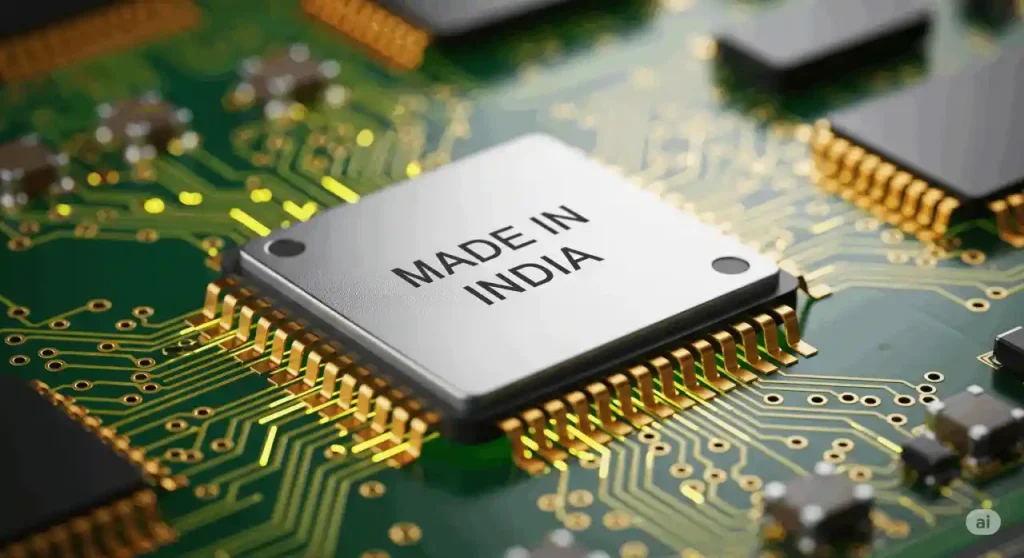Prime Minister Narendra Modi announced that India will roll out its first domestically manufactured semiconductor chip by the end of 2025. Speaking at The Economic Times World Leaders Forum on August 23, he also underlined that work on a Made-in-India 6G network is progressing at a rapid pace.

A Lost Chance, Now Regained
Modi reflected that India could have started semiconductor manufacturing 50–60 years ago but missed the opportunity for decades. He said the government has now reversed this situation with factories being set up across the country and production set to begin soon.
Semiconductors and 6G for Self-Reliance
Calling semiconductors critical to technological independence, the prime minister stressed that chip manufacturing will mark a turning point in India’s journey toward self-reliance. He added that a domestic 6G ecosystem is being built in parallel, positioning India as a leader in next-generation digital technologies.
Expanding Electric Vehicle Exports
Modi also highlighted India’s growing role in green mobility, stating that the country aims to export electric vehicles to more than 100 nations.
Reform, Perform, Transform
The prime minister reiterated his government’s reform mantra of Reform, Perform, Transform, noting that India is actively reshaping laws and policies. He pointed to the new Income Tax Bill, introduced after 60 years and written in simpler language, as an example of reforms aimed at benefiting citizens directly.
Economic Growth on the Global Stage
Modi said India is on track to soon become the world’s third-largest economy, adding that the nation already holds the title of the fastest-growing major economy. He cited expert forecasts that India’s contribution to global growth could reach 20 percent in the near future, crediting macroeconomic stability built over the last decade.
Strength Through Reforms
Despite opposition disruptions in Parliament, Modi stressed that the reform agenda remains on course. He highlighted reductions in the fiscal deficit to 4.4 percent, record fundraising in capital markets, and resilience even in the aftermath of Covid.
New Laws for Future Growth
The prime minister also pointed to updated shipping and port laws, many unchanged since British rule, as key to boosting India’s blue economy. Similarly, he said reforms in the sports sector, including a new National Sports Policy, are preparing India to build a full-fledged sports economy and host major global events.
